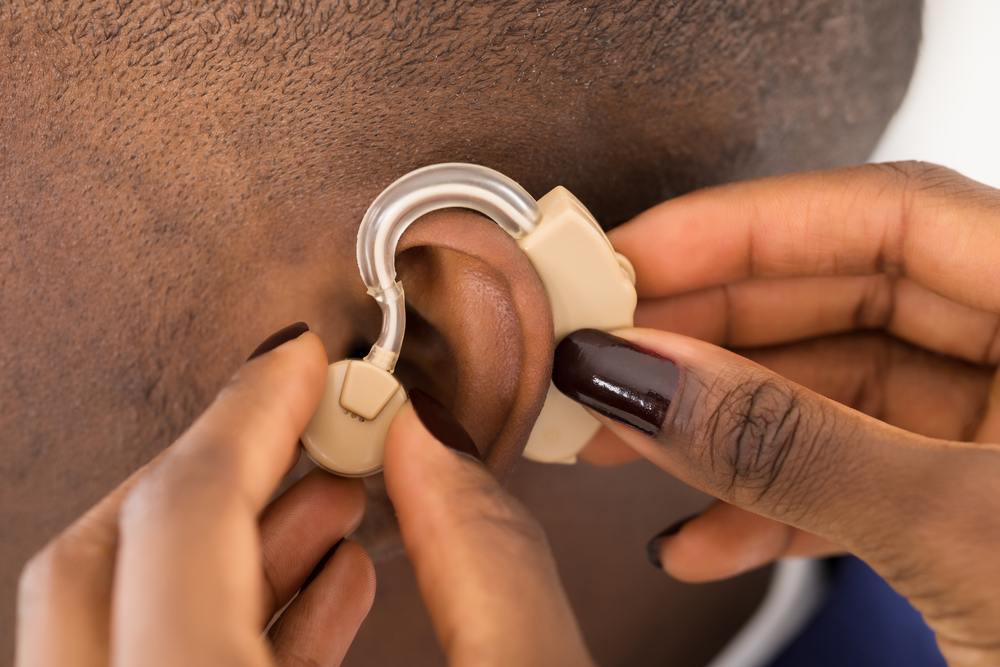
PhotoMediaGroup / Shutterstock.com
Packing up your things from your childhood home and moving away is basically the college initiation. Everyone has to do it. Doing it as a student who has hearing loss, however, can feel like going down a slalom course without any skiing lessons. If you’re not properly prepared for going away to school when you are deaf or hard of hearing, you’re sure to be licking your wounds later.
The transition from the comforts of high school to the chaos of college is a huge leap. Growing as an individual at college requires stepping up to challenging tasks, such as meeting with professors on campus, bonding with peers outside of classes, and building a rapport with professionals at internships. With a communication barrier, it can be even more difficult to exchange information and engage in new relationships. On top of that, the accommodations you received in high school might change in college and take some getting used to as well. Take these steps to make your college campus feel like a home away from home.
Disclose your disability to your school.
Some students don’t want to tell their schools that they have a disability, but sharing does have its benefits. A study by the faculty at the Virginia Polytechnic Institute and State University compared the graduation rates of 423 students with disabilities. It found that those who disclosed their disabilities after their freshman years had a significantly lower six-year graduation rate than students who disclosed their disabilities within that first year. Don’t make your education more challenging by avoiding the disclosure process; do it as soon as possible.
Reach out to your professors personally.
Introduce yourself ahead of time through an email and let your professor know who you are and what your situation is. Building a relationship with your professors is hard enough as it is, but if they do not sign or have experience communicating with people who are hard of hearing or deaf, then you will have a significantly more challenging experience trying to develop a rapport with them and understanding class material. Maybe if you play your cards right, this could give you a foot in the door later on when you’re looking for a letter of recommendation!

Andrey_Popov / Shutterstock.com
Bring what you need to communicate.
More and more students with hearing loss are going to college thanks to advances in technology and the accommodations granted by the Americans with Disabilities Act. Still, students experience a huge change when they arrive at college, even at institutions that provide their HoH students with an interpreter. Unfortunately, that professional may not be available all the time. Keep that in mind when packing for college and bring what you need to communicate with your peers and professors such as notepads, iPads, translators, chargers, and batteries for electronics (like hearing aids) if you have them.
Find a physician in the area surrounding your school.
If you saw an audiologist or otologist regularly at home, find one near your institution that is both affordable and comfortable. Similarly, if you wear a cochlear implant or a hearing aid, search for a shop nearby that can repair your hearing devices in case of an emergency.
Say hey to your new roommate.
Everyone wants to know the person with whom they will be cohabitating ahead of time. For two roommates who might struggle to understand one another easily in person, sending messages back and forth through Facebook or texting takes a huge weight off of both of their shoulders.
Look for clubs and organizations to join.
Feel free to start getting excited! This is one of the fun parts of going away to school—getting involved and meeting new people. There are tons of opportunities for students, regardless of disability, when it comes to clubs and organizations on campus or off. You can tutor students in sign language if you know it, or join a sports team, an acting group, and more. Pursue your passion with others who you connect with.
Practice strategies to keep yourself and your things safe.
Unfortunately, people with disabilities are seen as easy targets for theft and other crimes. Prepare for college by implementing safety procedures into your daily life. Avoid leaving your things unattended in the lunch hall or library. Many students buy safes for their rooms and locks for their laptops for assurance.
Once you’re at school, don’t get crazy. You still need to stay organized, buckle down, and do your assignments. Set yourself up with a master calendar for the semester and write down due dates from each of your class syllabi. And, at the risk of me sounding like your parents, keep your room clean!
No matter how far your college is from your hometown, being prepared for the change ahead of time can help you adjust and thrive on campus, especially as someone who suffers from hearing loss. Get ahead with these tips and show college what you’re made of!
-
Scholarships Opportunities for Undocumented Students
-
Scholarships for LGBT+ Students
-
Scholarship Opportunities for Undocumented Students
-
Scholarships for American Indians and Alaska Natives
-
The History of Higher Ed for Students Who Are Hard of Hearing or Deaf
-
My College Story: From Small Town to Big Campus
-
Scholarships for African Americans and Students of African Heritage
-
Scholarships for First-Generation College Students
-
The TRIO Programs

